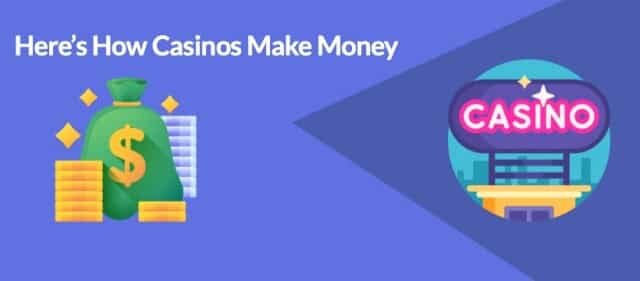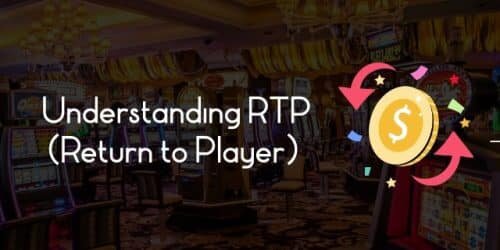Here’s How Casinos Make Money

Although online casinos are considered to be completely different versions of casinos, they are still casinos and they have the same objective: offer a platform where players can make their wagers, after which a casino will eventually win, at least in the long term. You can’t really blame the house for having a slight advantage as they’re the ones facilitating all the games, dealers, and other materials to make a wager.
The key question remains among a lot of players in New Zealand: how do casinos actually make money? Well, fellow Kiwis, it’s time to find out how. In this guide you’ll learn more about how casinos earn their money and there’s nothing really upsetting about it. You still have lots of chances to win. This is especially true for online casinos as you’ll find out in this guide about how casinos make money and how you should increase your own chances and get the most out of every wager.
Table of Contents
The handle
Online casinos make money via the so-called handle. It doesn’t really matter which casino game you’re playing, but the handle is crucial for any online casino operator when it comes to income. The handle stands for the total amount of money the total amount of visitors put in their bets. The handle can therefore change according to the casino games with the handle in a game of roulette being the chips. The money put into the bet can go two ways in most casino games with either the casino winning or losing the bet.
Criteria Affecting the handle
The handle clearly has its ways of affecting the revenue for casinos and there are a few factors that have a direct impact as casinos earn more money when they find a method to increase:
- Increase their house edge (which we’ll touch upon later on).
- Time played.
- Average bet.
This means that fewer players also means a lower handle and less profit. If few bets are made, either due to a limited time spent on gaming, or because of a low number of bets made within a certain period of time. When we take a closer look at how the business model of a casino works we’ll see how the overall handle is derived from the average bet the time played and the used capacity. This also means that operators that offer 500 online slots real money NZ will only be profitable if these pokies are in use. This is why capacity utilisation is of such importance. The more pokies being used, the more money being gained by the casino.
Average bet
The average bet of most casino games tends to be rather stable as a lot of them require a minimum bet. The wager is typically higher for table games. This is why it’s not very common to find a roulette game that has as low minimum bets as most regular online pokies. This is due to a simple reason as the house is expected to get a certain revenue for each round of blackjack. By setting high limits, the casino attracts high rollers, which are wealthy customers, therefore boosting the average bet size. At the same time table games tend to have a relatively low house edge.
House Edge explained
This brings us to our next topic; that of house edge. Some might argue that having a house edge over the visitor isn’t fair, but let’s not forget that it’s thanks to the house that players can get together and have a fun time at the venue. This makes it rather logical that the house has an advantage over its visitors as they wouldn’t have the chance to bet if it weren’t for the casino. Short term deviations of the house edge is what makes gambling gambling as it is still possible for the player to make a win and the casino to make a loss. Over a larger number of wagers the house’s average changes are expected to increase while the player’s chances will decrease.
Return to Player (RTP)
The payout percentage, also referred to as the Return to Player or RTP, is a percentage between 1% and 100% that represents how much percent the player earns back from the investment made in the long term. The closer the RTP is to 100%, the greater the chance the player will get his or her money back on the bet. This is a percentage where the payouts are assessed in the long term and short time differences can occur.
Example:
An online pokie has an RTP of 97,1% and that would get you back on average for every NZ$100, you would get NZ$97,10 back in the long run. That is, if you would make 1000 spins with a bet of NZ$1 per spin. As mentioned above, short time differences and this is what makes gambling so much fun as players are indeed able to beat the house every now and then. In the long term, this percentage is levelled out. The remaining NZ$2,90 is for the house, which brings us to our next point.
Difference between RTP and house edge
The concepts of RTP and House Edge often cause confusion among players which is clearly understable as the two are closely related. Return To Player and House Edge represent the same concept and they are basically the same things with one major difference: their perspective. Return to Player represents what return is expected from the player’s point of view, while the House Edge represents what the house is expected to gain. Both statistics can be derived from one another as they both work with a percentage from 1 to 100%. The Return to Player can never exceed the 100% as this would mean the house would lose and the house edge can never drop below 0% as this would mean the same thing. If the house edge is 2,7% in a game of roulette, the RTP is 97,3% and if an online pokie has an RTP of 96,4%, the house edge is 3,6%. The lower the house edge, the higher the RTP, and the higher the RTP, the lower the house edge.
Higher winning chances in online casinos
As you’ll get by now, paying close attention to the house edge and RTP of a game can be very useful during your casino experience, especially if you make frequent bets. Looking for specific games that offer high Return to Player’s are a way to lower the casino’s house edge and thus letting them earn less money. Adding an RTP check to your own selection criteria should be as basic as playing a certain game for its volatility, game theme, minimum bet or potential maximum win. RTP’s tend to be a lot higher for online games (and thus offer lower house edges) as operators have to deal with a lot more competition than brick and mortar casinos that are only limited to competitors within the same geographical region. This is exactly why online players get casino bonuses to join them and offline players don’t. Let’s face it, you get heaps of free spins in online casinos, but you’ll never get a free spin if you would stick to one of the land based casinos in New Zealand.
Last note
As more and more players have switched to online casinos, online operators have boosted their prize pools which is notably true for poker, pokie games, and jackpot pokies. In fact, it’s rather impressive to see how casino games that can be played on a computer or via mobile casinos pay out more than games that are found in the world’s most top notch brick and mortar casinos. Ultimately, casinos will continue making big money whether it’s online or offline, as long as players are willing to keep playing. It’s just that short term wins can always occur and that wisely picking your next casino game can make a difference as well.








